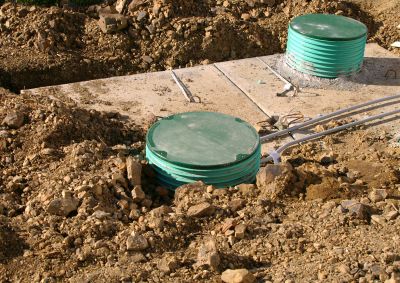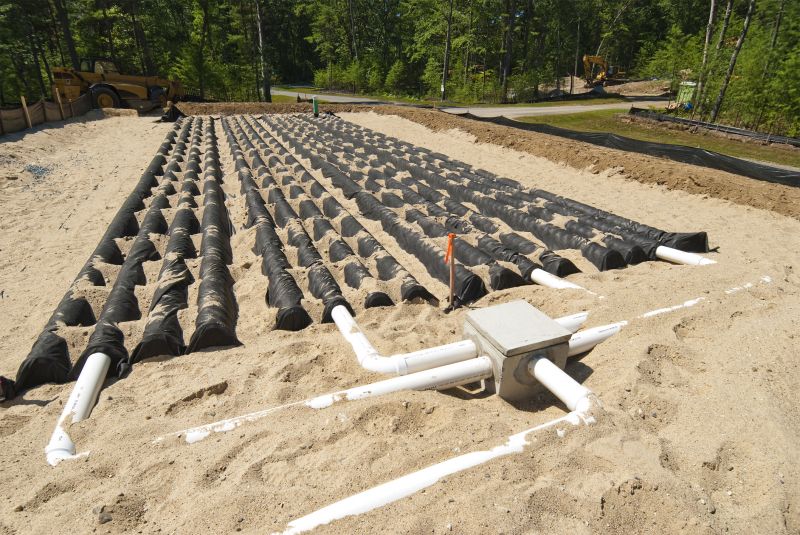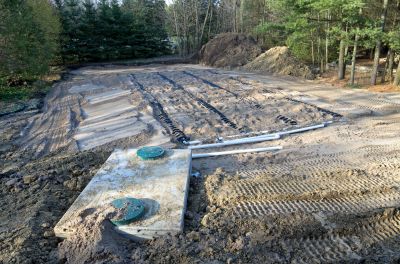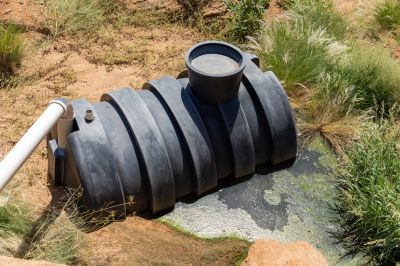Get Septic Installation in Fort Collins, CO
Septic installation services help Fort Collins property owners set up or replace septic systems to prevent backups, ensure proper waste management, and support residential or commercial projects.
Property owners in Fort Collins, CO, exploring septic installation services are in the right place to find helpful information. Installing a septic system is an important step for those planning new construction, upgrading an existing setup, or managing properties where municipal sewer access isn’t available. Understanding the practical aspects of septic installation can help ensure a smooth process, from assessing site conditions to selecting the appropriate system type. Comparing local contractors who specialize in septic services can provide clarity and confidence as you consider your project options.
Continuing to explore this page can assist in identifying qualified service providers in the Fort Collins area. Many property owners choose to work with local contractors who understand regional soil conditions, regulations, and best practices for septic system installation. Gathering information about different options and how they align with your property’s needs can support informed decision-making, making it easier to move forward with your project confidently.
- Septic System Installation - needed when building a new home or replacing an outdated system in neighborhoods around Fort Collins, CO.
- Septic Tank Replacement - required when existing tanks are failing or no longer meet the needs of a property in nearby communities.
- Septic System Upgrades - necessary for properties experiencing increased water usage or expanding in areas like Loveland or Greeley.
- Septic System Repair - needed when there are signs of system failure such as backups or odors in rural or suburban properties.
- Septic System Inspection - recommended before purchasing a property or for routine maintenance in neighborhoods across Northern Colorado.



Septic installation services involve the process of designing, planning, and setting up a septic system for properties that are not connected to municipal sewer lines. This typically includes assessing the property’s land, soil conditions, and usage needs to determine the most effective system design. Once the plan is in place, contractors will excavate the area, install the septic tank, and set up the drain field or leach field, ensuring everything functions properly to manage wastewater safely and efficiently. Proper installation is essential to prevent future issues and ensure the system operates reliably for years to come.
Septic systems help address common problems related to wastewater management, such as sewage backups, unpleasant odors, and groundwater contamination. When a property’s existing system becomes overwhelmed or fails to drain properly, it can lead to costly repairs or health hazards. Septic installation services are often needed when building a new home in a rural or suburban area, or when replacing an outdated or damaged system. Having a professionally installed septic system can help prevent these issues and maintain a safe, functional environment for the property’s inhabitants.
Properties that typically use septic installation services include rural homes, ranches, and properties situated outside of urban sewer districts. These properties often lack access to municipal sewer lines, making a private septic system the most practical solution for waste disposal. Additionally, some small commercial properties, such as bed-and-breakfasts or small-scale farms, may also require septic systems to handle their wastewater needs. Local contractors who specialize in septic installation can evaluate the specific requirements of each property and recommend the appropriate system size and type.
Homeowners who are planning to build a new residence or upgrade an existing system may find septic installation services essential. Knowing when a property needs a septic system installed or replaced can prevent future complications and ensure compliance with local regulations. By connecting with experienced local service providers, homeowners can compare options, get expert advice, and find the right solution for their property’s wastewater management needs. Proper installation by skilled contractors helps ensure that the septic system functions effectively, providing peace of mind for years to come.
The overview below groups typical Septic Installation projects into broad ranges so you can see how smaller, mid-sized, and larger jobs often compare in Fort Collins, CO.
In many markets, a large share of routine jobs stays in the lower and middle ranges, while only a smaller percentage of projects moves into the highest bands when the work is more complex or site conditions are harder than average.
Smaller Repairs - Typical costs for minor septic repairs, such as fixing leaks or clogs, generally range from $250 to $600. Many routine jobs fall within this middle range, depending on the extent of the work needed.
Septic Tank Replacement - Replacing an existing septic tank can cost between $3,000 and $7,000 for standard systems. Larger or more complex installations may reach $10,000 or more, though most projects stay within the lower to mid-range.
Full System Installation - Installing a new septic system from scratch usually costs between $4,000 and $9,000. Many homeowners in the area find their projects fall into this range, with larger or custom systems pushing higher.
Large or Complex Projects - Extensive septic system upgrades or installations for challenging sites can exceed $10,000 and sometimes reach $15,000 or more. These higher costs are less common but are handled by local contractors for specialized needs.
Actual totals will depend on details like access to the work area, the scope of the project, and the materials selected, so use these as general starting points rather than exact figures.
Drain Field Installation - involves designing and installing underground systems to safely disperse wastewater, utilizing similar planning and excavation skills as septic system setups.
Septic Tank Replacement - requires removing old tanks and installing new ones with proper site preparation, similar to initial septic system installations.
Soil Testing and Site Evaluation - involves assessing soil conditions to determine suitable locations for septic systems, sharing expertise in site planning and environmental assessment.
Drainage System Repair - focuses on fixing underground drainage components, requiring knowledge of underground piping and excavation techniques used in septic work.
Water Line Installation - involves laying underground water supply lines, which shares trenching, piping, and site preparation skills with septic system installation.
Leach Field Repair - entails diagnosing and repairing underground drain fields, requiring familiarity with soil conditions and underground piping similar to septic services.

When selecting a contractor for septic installation, it’s important to consider their experience with projects similar in scope and complexity. Homeowners should inquire about the types of septic systems they have installed and whether they have worked on properties comparable to their own. A contractor with a proven track record in the local area can often better understand regional soil conditions, regulations, and common challenges, which can contribute to a smoother installation process.
Clear, written expectations are essential to ensure that both parties are aligned on the scope of work, materials, and responsibilities. Homeowners are encouraged to request detailed proposals or contracts that outline what will be included in the project, timelines, and any warranties or guarantees offered. Having this information in writing can help prevent misunderstandings and provide a reference point throughout the project.
Reputable references and effective communication are key indicators of a dependable service provider. Homeowners should seek out local contractors who can provide references from previous clients with similar projects. Additionally, good communication-prompt responses to questions, clarity in explanations, and transparency about the process-can make the experience more straightforward and less stressful. It’s important to remember that this site helps connect homeowners with local service providers and does not perform the work itself, so taking the time to compare and verify these qualities can lead to a more successful septic installation.
Property owners in Fort Collins, CO use Septic Installation services for practical projects around their homes and businesses. This guide focuses on everyday jobs and straightforward project options.


Septic installation services are often needed when property owners in Fort Collins acquire a new property that isn’t connected to a municipal sewer system or when existing systems require replacement due to age or failure. Homeowners planning to build new structures or add extensions may seek local contractors to install a reliable septic system that meets local codes and ensures proper waste management. Additionally, those experiencing issues with their current septic system, such as backups or foul odors, might look for experienced service providers to replace or upgrade their existing setup to maintain a healthy and functional property.
In Fort Collins, property owners might also consider septic installation when renovating rural or semi-rural homes where access to city sewer services is limited. Some property owners may need to expand their septic capacity to accommodate increased household size or new appliances, prompting a search for local contractors who can handle these upgrades. Whether installing a new system or replacing an outdated one, connecting with knowledgeable service providers ensures that the work complies with local regulations and supports the property's ongoing use and value.
What is involved in installing a septic system? Septic installation typically includes site assessment, soil testing, system design, and proper installation of the septic tank and drain field by local contractors experienced in the process.
How do I know if my property needs a new septic system? Signs such as persistent drain backups, foul odors, or pooling water around the property may indicate the need for a new septic system; a local professional can evaluate the site and provide guidance.
What types of septic systems are available for residential properties? Common options include conventional gravity systems, pressure distribution systems, and mound systems, with local service providers able to recommend suitable solutions based on site conditions.
What factors influence the installation process for a septic system? Factors such as soil type, property size, local regulations, and system size can impact installation requirements and procedures handled by experienced contractors.
Are there any permits required for septic installation in Fort Collins, CO? Yes, local regulations typically require permits for septic system installation, and service providers can assist with navigating the permitting process.
Septic System Installation Tips - Property owners can explore local contractors to help set up a septic system for new construction or property expansions.
Design and Planning Ideas - Homeowners planning a backyard renovation or addition might consult local service providers to ensure proper septic system placement.
Maintenance and Upgrades - Those experiencing drainage issues can connect with local contractors to assess and upgrade existing septic systems.
Environmental and Site Assessments - Property owners considering land development can work with local pros to evaluate soil conditions for septic suitability.

If you are thinking about Septic Installation for a property in Fort Collins, CO, this guide is meant to help you understand the work, the typical project types, and how different options might fit your plans.
When you are ready, you can use the quote form on this page to share a few details about your project. From there, local pros can review the basics and respond with options that match what you have in mind.
